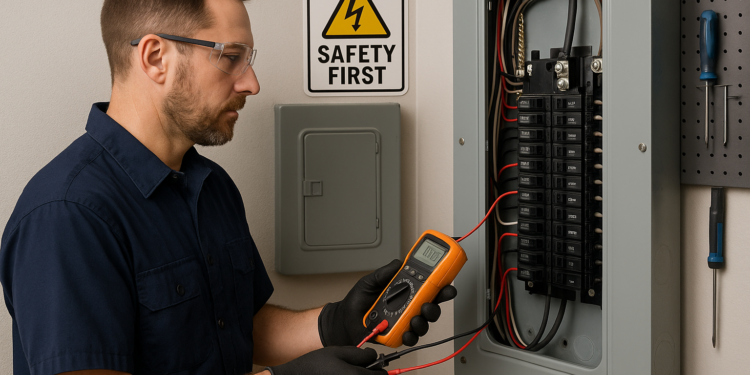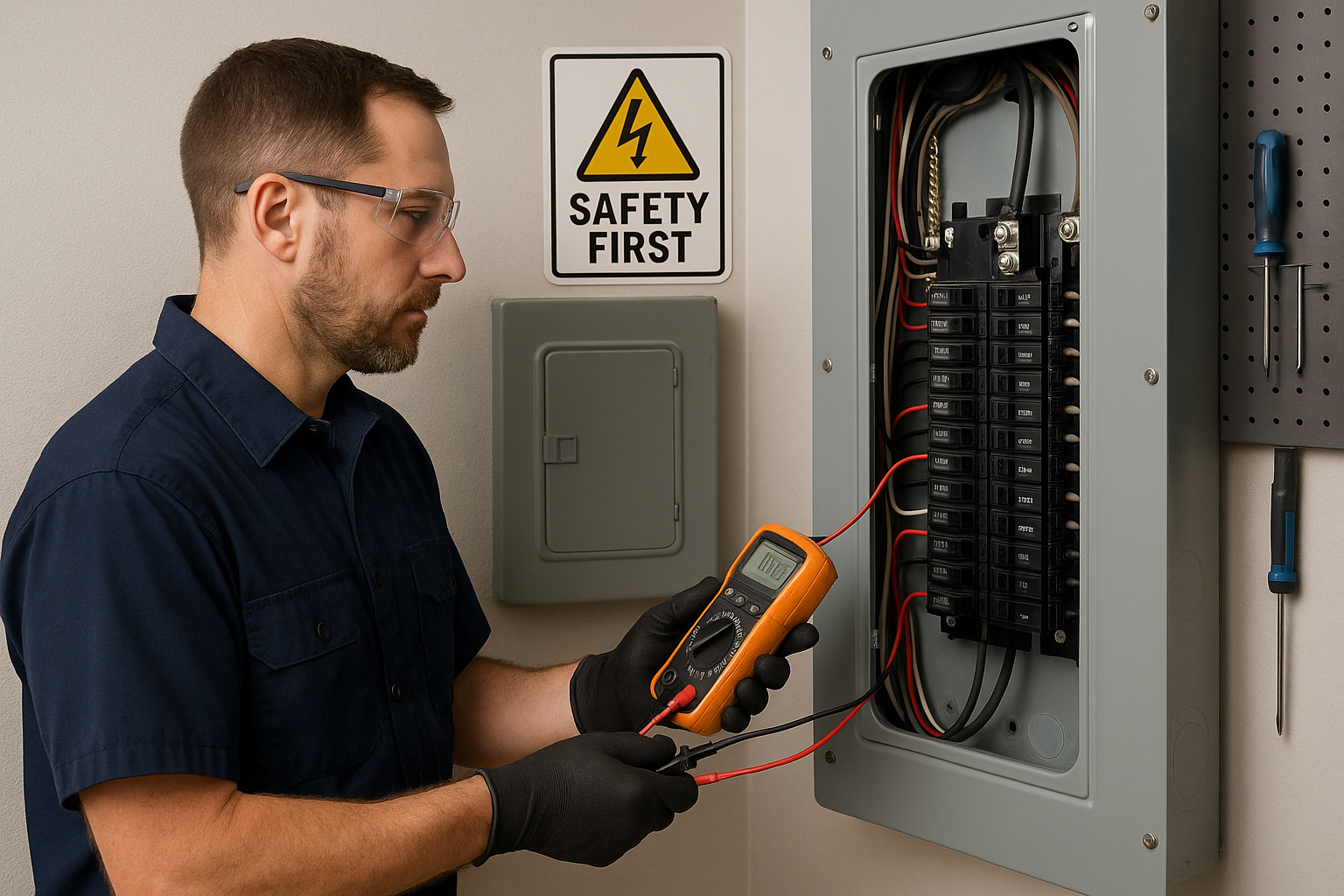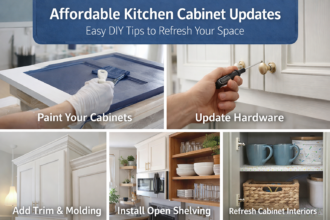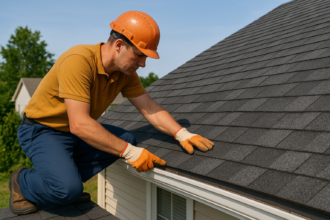How Safe Is Your Electrical Panel? What Every Homeowner Should Know

Table of Contents
Introduction
The heart of your home’s electrical system lies in the electrical panel, a crucial component that keeps your property and family safe from hazards like fires and electrical surges. Your panel controls the flow of electricity to every outlet, switch, and appliance in your home, silently managing the daily demands of modern technology and power usage. Yet, thousands of homes risk safety every year due to aging or faulty panels, often overlooked until it’s too late. Periodic attention, timely upgrades, and expert care make a significant difference, particularly if your system can no longer meet today’s growing power demands. If your electrical panel is outdated or you are planning future upgrades for new technology, professional 200 amp electrical panel installation is often required. In that case, we recommend ensuring your home is prepared for modern living and future technologies.
Your electrical panel must be equipped to handle evolving household technology, from smart appliances and energy-hungry home offices to electric vehicles and entertainment centers. Overloading an outdated panel or ignoring minor warning symptoms can quickly lead to cascading problems throughout your home. If you ever notice lights flickering, experience regular breaker trips, or hear unusual noises from your panel, it’s essential to act promptly and reevaluate your system before problems escalate. Neglecting an aged or defective panel can result in power outages, damage to your valued appliances, severe electrical faults, and, most dangerously, electrical fires that threaten your property and safety.
Understanding the Role of Your Electrical Panel
The electrical panel—often referred to as a breaker box, fuse box, or service panel—is a steel box usually found in a utility area, basement, or garage. This box contains rows of individual circuit breakers or, in older systems, fuses that distribute and regulate electricity through distinct circuits in your home. When a circuit is overloaded or damaged by a short, these breakers will switch off to interrupt the power, keeping wires from overheating or catching fire. Essentially, the panel serves as a defensive barrier, shutting down problems before they spread and cause greater harm.
Modern households demand far more power than those built a few decades ago, especially with the widespread adoption of electric heating and cooling, kitchen gadgets, high-powered washers and dryers, and multiple computers or tech devices. Older panels—particularly those in homes constructed before the 1990s—may lack not only capacity but also essential safety features now required by code. Overloaded or malfunctioning panels can easily become safety hazards, increasing the risk of electrical shock, fire, or catastrophic appliance failure. According to the National Fire Protection Association (NFPA), electrical failures or malfunctions are a leading cause of house fires in the United States, sending thousands of families into crisis each year.

Warning Signs of an Unsafe Electrical Panel
Staying alert to unusual symptoms can spare you from expensive repairs and dangerous incidents. Some of the warning signs that your electrical panel may be unsafe include:
- Frequent Circuit Breaker Trips: These often indicate overloaded circuits or deteriorating breakers. Repeated trips are more than an inconvenience—they suggest a deeper issue requiring immediate attention.
- Burning Smell or Scorch Marks: If you notice burning odors near the panel or see blackened marks around circuit breakers, it signals overheating and could quickly lead to an electrical fire.
- Flickering or Dimming Lights: Lights that intermittently flicker or dim, especially when major appliances turn on, suggest your system is struggling to maintain a stable voltage and is likely undersized for your needs.
- Buzzing or Crackling Sounds: Any unusual noises, such as buzzing, popping, or crackling from your panel, indicate arcing electricity or loose wiring, both serious safety risks demanding immediate professional inspection.
- Rust or Corrosion: Water leaks, condensation, or prolonged high humidity can cause rust to form on circuit breakers or panel housing, threatening integrity and performance; water and electricity are a lethal combination.
If you notice any of these signs, consult a licensed electrician immediately to assess and resolve the problem before more severe damage occurs. Addressing warning signs early is the best way to avoid larger disasters—and expenses—down the road.
Risks Associated With Outdated Electrical Panels
Many of the most critical electrical hazards that homeowners and property owners face today originate from outdated electrical panels that are too old and obsolete to effectively keep up with modern safety codes, regulations, and current energy consumption habits. Panels such as Federal Pacific Electric (FPE) or Zinsco, which are commonly found in homes built during the 1960s through the 1980s, not only fail to comply with today’s stringent safety standards but are also highly susceptible to dangerous malfunctions due to inherent design flaws. FPE panels’ circuit breakers have gained a notorious reputation for failing to trip during hazardous overloads, thereby increasing the risk of electrical fires and damage. In contrast, Zinsco panels sometimes allow breakers to melt or become deformed without disconnecting the circuit, posing severe safety hazards. These kinds of failures can lead to dangerous live electrical arcs, significantly increase the risk of fire outbreaks, or result in damaging power surges that can harm appliances and electronics. Upgrading your outdated panel to a current-generation, modern electrical panel greatly reduces these risks, enhances the overall reliability and safety of your entire electrical system, and is crucial for supporting today’s energy-hungry appliances, home automation systems, and future upgrades. Besides the considerable increase in safety, installing new panels can also deliver improved energy efficiency, help reduce electricity costs, and potentially add to your property value and market appeal. For homeowners and property owners seeking more detailed information on why electrical panel upgrades are essential, the comprehensive Consumer Reports guide to electrical safety provides an authoritative and trustworthy resource to help you make informed decisions about safety, compliance, and the long-term value of your home.
Essential Electrical Panel Safety Tips
- Schedule Regular Inspections: Have a professional check your panel at least once a year to identify worn or hazardous components. Proactive inspection is especially important for homes older than 20 years or with recent renovations.
- Keep the Area Dry and Accessible: Ensure your panel is installed in a dry location away from pipes or potential floods, and keep at least three feet of clear space around it for safety during emergencies.
- Label Each Breaker Clearly: Accurate labeling ensures you can quickly locate, isolate, and shut off any problematic circuit, saving time and preventing the accidental interruption of critical systems like refrigerators or medical equipment.
- Avoid Overloading Circuits: Spread devices and appliances across several circuits, and never use extension cords or power strips as permanent solutions for lack of outlets; overloading circuits is a leading cause of breaker failure and overheating.
When to Consider an Electrical Panel Upgrade
Replacement or upgrade may become necessary under several conditions, such as:
- Your home still uses an FPE, Zinsco, or a panel older than 25 years.
- You plan significant renovations or additions that require more power.
- Frequent breaker trips or persistent, unexplained dim lights despite repairs.
- Insurance companies flag your electrical system as a risk, potentially affecting coverage.
A licensed electrician can evaluate your home’s usage patterns and recommend whether a replacement is due. Upgraded panels are also vital when you wish to integrate high-power systems like electric vehicle charging stations, tankless water heaters, or modern HVAC equipment. The Wirecutter explains more about integrating new technology and ensuring safe, sufficient power distribution for today’s households.
Professional Maintenance and Compliance
Only licensed electricians should install, repair, or service your electrical panel. Working with a professional guarantees the work adheres to the strict requirements of the National Electrical Code, as well as all state and local building codes. Routine inspections and timely upgrades not only help minimize insurance costs but can also maximize your home’s safety profile. Many insurance agencies now require proof of a compliant, updated electrical panel for homeowner’s policy approval, and, depending on the age of your panel, some may even refuse coverage until you upgrade.
Proactive care of your electrical panel provides peace of mind, defends the overall value of your property, and most importantly, keeps your loved ones safe from preventable hazards. Don’t let neglect or outdated equipment put your home at risk—schedule regular inspections, address repairs or upgrades as your needs change, and keep familiar with the warning signs for the safest, most resilient home possible.






